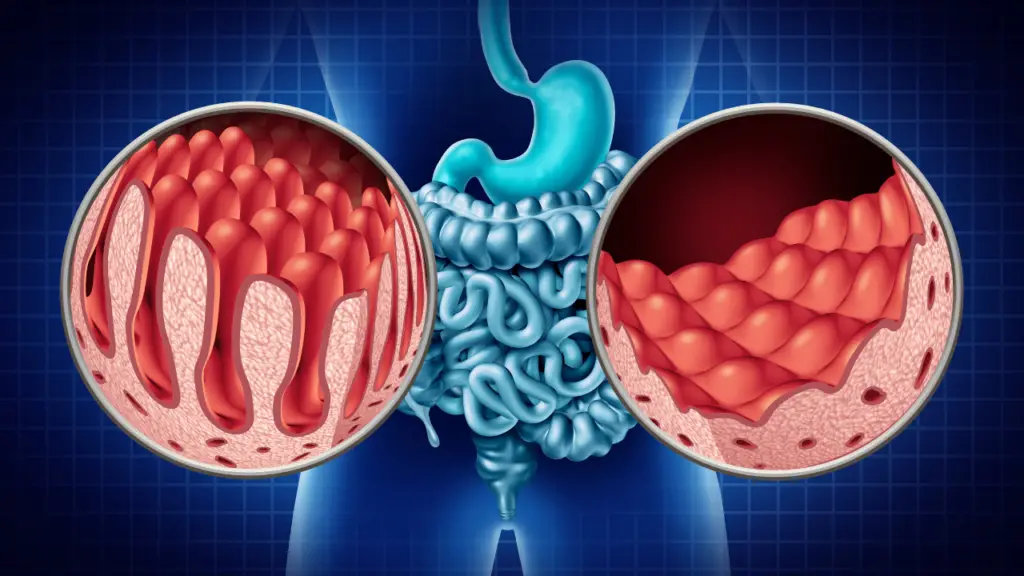Different parts of the human body are connected in astonishing ways. Medical experts back up the connection that an issue in one part of your body can affect other systems indirectly.
While you may not link gut health to your body's ability to fight against diseases, they're related. Understanding everything you need to know about gut health and the immune system is discussed as you read on.
Explaining The Human Body's Immune System
Our body consists of several systems that work together to ensure that we live life at its best. Some organ systems are specified to inhale and exhale air in and out of the body, while others provide structural support.
Our body needs protection from harmful invading substances that cause diseases, and our immune system is responsible for this function. For instance, if you're traveling on a dusty road, your skin will protect your body from dust and dirt particles.

For our ease, medical experts have divided our immune system into three lines of defense. We just talked about the first line of defense, the skin. It keeps out harmful particles and prevents their entry.
But that does not always happen. Some pathogens or disease-causing agents find a way past the first line of our defense and enter the body. But our immune system has got us covered, as the second line of defense is ready to neutralize these pathogens.
The second line of defense constitutes several specialized cells, including neutrophils, eosinophils, basophils, and mast cells. The names might confuse you the first time you read them, but by the end of the article, you'll develop ample familiarity with them.
Certain bacteria, viruses, and fungi are very sneaky and can pass through the second line of defense. When that happens, the body relies on the next defense system to deal with them.
The third line of the defense comprises two types of cells: B cells and T cells. B cells are responsible for forming antibodies. The T cells are programmed to directly attack bacteria, viruses, or fungi.
Defining Autoimmune Disorders & Celiac Disease
After our previous discussion, we can safely establish that the immune system is critical for our body. Without it, our body can not fight disease-causing agents, and we will eventually die.
Unfortunately, the immune system does not function properly and, accidentally, becomes rogue. It identifies the body's cells as a threat and attacks them. So, the antibodies meant for harmful pathogens are sent to damage and destroy the body cells. Conditions like this are called autoimmune disorders.
You might be acquainted with the anomaly called celiac disease. It is an autoimmune disorder in which the body's immune system reacts violently whenever the patient eats gluten.
The B cells produce rogue antibodies that attack the small intestine lining, affecting many body functions. For instance, the small intestine cannot absorb food and nutrients as effectively as possible.

The patient may also suffer from deficiency diseases due to malabsorption, even though the dietary intake is sufficient.
Patients complain about abdominal pain, vomiting, diarrhea, chest burning, etc. But, sometimes, the patients also show atypical symptoms such as itchy, blistering skin or dark circles under the eyes.
And why does all of this happen? Because the immune system misinterprets gluten and small intestinal cells as harmful pathogens that are about to harm the body.
The Connection Between Gut Health & Other Functions
Our digestive system, or the gut, digests the food we eat, converts it into consumable forms, and excretes the waste. But with further research, medical experts found out that there's a link between the gut and several of our body systems.
Many patients complained about itchy skin or a faulty immune system. But when the doctors examined them in detail, they traced the cause to an unhealthy gut.
The example of celiac disease is fresh in our minds. The patients with dark circles under their eyes had no issues with their eyes or the surrounding skin. Their problematic gut was creating all the fuss.
Let's take another example of how important our gut health is. Clinical anxiety and depression are some of the worst psychological disorders. Improper gut health can cause anxiety and depression and gravely impact your mental health.

When scientists found out about these atypical functions of our gut, they dug deeper to find the connection. There are millions of bacteria, fungi, and other microorganisms that aid our digestive system in absorbing vital nutrients and minerals.
But it is the gut microbiota that also performs most of those atypical functions. For instance, any imbalance in the microbiota upsets the normal brain activities, and the patient can develop anxiety and depression. Or, the gut microbiota can also affect the immune system.
Are Gut Health and the Immune System Related?
All of this discussion leads us to our main question. Are our gut health and the immune system related? If yes, then what creates this link?
Like the rest of the human body, gut health also says how the immune system works. The microorganisms in the gut regulate and influence our immune system both directly and indirectly in numerous ways. Let's discuss them in detail!
Gut Bacteria and Neutrophils:
Neutrophils are fundamental immune cells that form the second line of defense of the body. These cells recognize disease-causing agents and neutralize their threat.
Scientists have isolated three types of bacteria that induce the production of neutrophils and increase their concentration in blood. Not only that, but a healthy gut and proper microbiota balance strengthen the killing activity of these immune cells.

Patients with a leaky gut or are diagnosed with microbiota imbalance also have an impotent immune system. Their neutrophils are not strong enough to fight any bacteria or viruses, which dominate the immune system and cause diseases.
Gut Health and T Cells:
The third line of defense consists of two major types of cells: the T cells. There are further subtypes of T cells. The proportion of these subtypes in the blood is an essential indicator of how efficient an individual's immune system is.
One of the subtypes is so vital that its deficiency mostly leads to several autoimmune disorders. Gut microbiota promotes the growth and proliferation of these cells both within the gut and outside it.
Comprehensive medical studies have identified and found the individual bacterial species behind this. Thus, there's no doubt left behind that our gut health and immune system are related.
Inflammatory Bowel Disease:
Inflammatory Bowel Disease or IBD is a common disorder that hampers gut functions. Those who suffer from IBD know all about the abdominal pain, diarrhea, weight loss, and fatigue that come with it.
You might have heard from a doctor or consultant that antibiotics can treat diseases caused by bacterial infections. Doctors prescribe antibiotics to patients with Inflammatory Bowel Disease for treatment, so we know the condition has some bacterial origin.

But when scientists studied this illness in detail, they found further evidence to support the theory that dysbiosis causes IBD. Intestinal inflammation can cause the reduction of two helpful bacteria and overgrowth of another specific type of bacteria. These factors lead to the onset of Intestinal Bowel Disease.
Although taking antibiotics may be needed, make sure you know what they do to your gut health. Keep aware that antibiotics kill not only harmful bacteria but also good bacteria. Therefore, you will need to rebalance your microbiome after taking them.
Old-Age, Microbiota, and Diseases:
We feel energetic, enthusiastic, and physically fit when we are young. But with age, all these consistently decrease, and our body becomes more and more susceptible to catching diseases.
Ever wonder why that happens? Among several reasons, an out-of-balance gut is a pretty frequent cause. The diversity of our good gut bacteria starts to decrease, and all the beneficial microorganisms slowly begin to die out.

As a result, the body's immune system also gets weaker and loses against pathogens. For this reason, doctors and nutritionists advise aged people to drink plenty of fluids and eat high-fiber foods.
Yogurt is an example of fermented foods containing probiotics and promoting a healthy gut and, hence, a strengthened immune system.
Can the Immune System Impact Gut Health?
Celiac disease is an example of how a faulty immune system can impact gut health. Let's discuss other such instances:
Sjögren syndrome
Sjögren syndrome is an autoimmune disorder in which antibodies invade the digestive system and destroy parts of the major organs. It is predominant and almost nine times more common in women living in their forties and fifties.
Several glands in the digestive tract help in digestion with their secretions. The most commonly affected site in this disease is salivary glands, which produce saliva in the mouth.
Due to the damage to this gland, patients often come with complaints of difficulty swallowing. Other clinical symptoms include indigestion, nausea, extreme pain, and deficiency of essential nutrients and minerals.
Progressive Systemic Sclerosis:
This autoimmune disease is also more prevalent in women between 30-50 than in men. In Progressive Systemic Sclerosis or Scleredema, the rogue antibodies attack the genes and DNA of the affected organs.
This ailment can attack any part of the body, but patients with gastrointestinal manifestations are more common. Common symptoms include thin lips and loss of taste.

Almost 80-90 percent of the patients develop structural and functional abnormalities in their food pipes. While some patients suffer from heartburn and inflammation, others find chest pain and malabsorption too hard to handle.
Kawasaki Disease:
Unfortunately, there is still a bit of confusion regarding whether or not Kawasaki Disease is a typical autoimmune disorder or not. But there's no doubt that it's an example of a medical condition in which the immune system affects the gut.
The disease is common in infants and kids, who showed dry lips and strawberry tongue signs. Abdominal pain, diarrhea, and vomiting, along with mild to moderate jaundice, are also frequently seen. The tissue might also get damaged due to decreased blood supply.
Final Words
Now that you're aware that there's a connection between the digestive system and your immune system or vice versa, you understand the importance of good gut health. Getting a regular checkup and paying attention to any symptoms is critical.
Sometimes there's a lot more going inside your body than you'd think. A medical examination can provide professional medical assistance to diagnose the origin of the issue.







1 thought on “How Is Gut Health Related To The Immune System?”
Comments are closed.